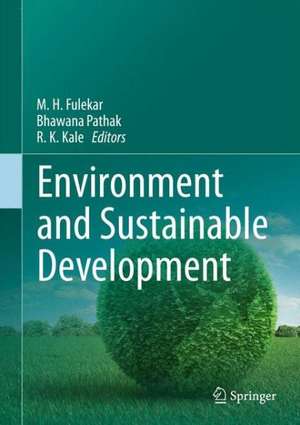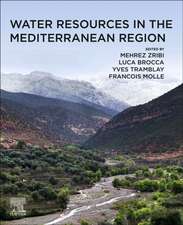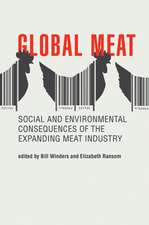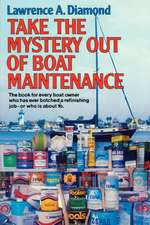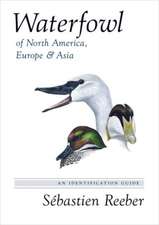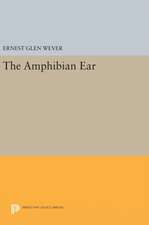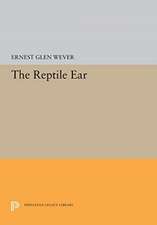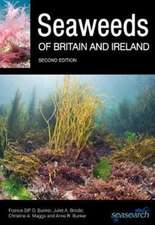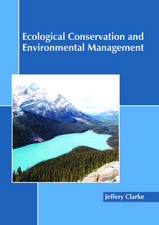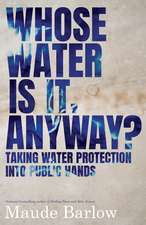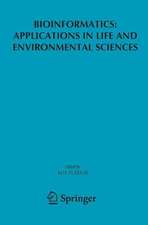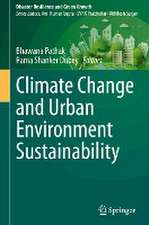Environment and Sustainable Development
Editat de M. H. Fulekar, Bhawana Pathak, R K Kaleen Limba Engleză Hardback – 15 oct 2013
Human beings, in the truest sense, are the product of their environment. The man-environment relationship indicates that pollution and deterioration of the environment have a social origin. The modern technological advancements in chemical processes/operations have generated new products, resulting in new pollutants in such abundant levels that they are above the self-cleaning capacity of the environment. One of the major issues in recent times is the threat tohuman lives due to the progressive deterioration of the environment from various sources. The impact of the pollutants on the environment will be significant when the accumulated pollutants load will exceed the carrying capacity of the receiving environment.
Sustainable development envisages the use of natural resources, such as forests, land, water and fisheries, in a sustainable manner without causing changes in our natural world. The Rio de Janeiro-Earth Summit, held in Brazil in 1992, focused on sustainable development to encourage respect and concern for the use of natural resources in a sustainable manner for the protection of the environment.
This book will be beneficial as a source of educational material to post-graduate research scholars, teachers and industrial personnel for maintaining the balance in the use of natural sources for sustainable development.
| Toate formatele și edițiile | Preț | Express |
|---|---|---|
| Paperback (1) | 779.71 lei 43-57 zile | |
| Springer India – 26 aug 2016 | 779.71 lei 43-57 zile | |
| Hardback (1) | 784.79 lei 43-57 zile | |
| Springer India – 15 oct 2013 | 784.79 lei 43-57 zile |
Preț: 784.79 lei
Preț vechi: 957.06 lei
-18% Nou
Puncte Express: 1177
Preț estimativ în valută:
150.22€ • 163.22$ • 126.26£
150.22€ • 163.22$ • 126.26£
Carte tipărită la comandă
Livrare economică 21 aprilie-05 mai
Preluare comenzi: 021 569.72.76
Specificații
ISBN-13: 9788132211655
ISBN-10: 8132211650
Pagini: 212
Ilustrații: XII, 198 p. 35 illus., 22 illus. in color.
Dimensiuni: 178 x 254 x 17 mm
Greutate: 0.52 kg
Ediția:2014
Editura: Springer India
Colecția Springer
Locul publicării:New Delhi, India
ISBN-10: 8132211650
Pagini: 212
Ilustrații: XII, 198 p. 35 illus., 22 illus. in color.
Dimensiuni: 178 x 254 x 17 mm
Greutate: 0.52 kg
Ediția:2014
Editura: Springer India
Colecția Springer
Locul publicării:New Delhi, India
Public țintă
ResearchCuprins
Preface.- Contributors.- 1.Emergence of Green Technologies towards Sustainable Growth.- 2.Sustainable Development: An Earnest Hope.- 3.Soil Seed Bank Dynamics: History and Ecological Significance in Sustainability of Different Ecosystems.- 4.Challenges and Prospects in Exploring Marine Microbial Diversity.- 5.Bioprospecting of Plant Essential Oils for Medicinal Uses.- 6.Air Pollution Scenario over Delhi City.- 7.Nanotechnology: Perspective’s for Environmental Sustainability.- 8.An Overview of Environmental Remediation using Photocatalyst.- 9.Role of Biopolymers in Industries: their prospective future applications.- 10.Green Federalism: A Historical leap towards Sustainable Human Development.- 11.Economic sustainability in light of consumer behavior: Social Perspectives.- 12.Global warming and agriculture: Industrial Arrangement for sustainable Development.- 13.Green Buildings - Opportunities and Challenges.- 14. Mathematical models in sustainable development.- Index.
Notă biografică
Dr. M. H. Fulekar is a Professor and Dean at School of Environment and Sustainable Development, Central University of Gujarat. He was also professor and Head, University Department of Life Sciences, University of Mumbai. He has in his credit 150 numbers of research papers and articles published in international and national journals of repute. He is also author of 10 books. He has guided 09 Ph.D. students. As a Principal Investigator, he has completed Research Project: UGC, CSIR, BRNS, DBT R&D and Industrial projects. He has achieved “Who’s Who” in Science and Engineering USA in 1998; and “outstanding Scientist of the 20th Century” in 2000, from International Biographical Centre, Cambridge, England. He is also a member of New York Academy of Sciences, USA.
Dr. Bhawana Pathak is working as Assistant Professor in School of Environment and Sustainable Development, Central University of Gujarat. Earlier she has worked as a Pool Officer in University Department of Life Sciences, University of Mumbai (2010-2011). She was awarded CSIR - Research Associateship (2004) and worked on Plant behaviour Ecology and Biodiversity conservation. She has worked as research Associate at GBPHIED Kosi, Katarmal Almora (2004-2006) and in University Department of Life Sciences, University of Mumbai (2006-2009). She has completed her M.Sc. in Botany with Gold Medal from Kumaun University Nainital (1998) and PhD in Plant Ecology from G. B. Pant Institute of Himalayan Environment and Development Kosi –Katarmal Almora (2002).
Prof. R. K. Kale has been teaching in school of Life Sciences, Jawaharlal Nehru University (JNU), New Delhi. He has published more than 110 research papers in national and international scientific journals. He was awarded ICMR Prize for Biomedical Research – 1996, for his original contribution to radiation biology. He guided research work of 29 students leading to award of Ph.D. and also 06 students for M.Phil. degree. He also greatly contributed in the area of higher education and society. He has extensive experience in University Administration and Planning and served the JNU in various capacities including Dean of School of Life Sciences. Presently, he is Vice Chancellor of the Central University of Gujarat, Gandhinagar, India.
Dr. Bhawana Pathak is working as Assistant Professor in School of Environment and Sustainable Development, Central University of Gujarat. Earlier she has worked as a Pool Officer in University Department of Life Sciences, University of Mumbai (2010-2011). She was awarded CSIR - Research Associateship (2004) and worked on Plant behaviour Ecology and Biodiversity conservation. She has worked as research Associate at GBPHIED Kosi, Katarmal Almora (2004-2006) and in University Department of Life Sciences, University of Mumbai (2006-2009). She has completed her M.Sc. in Botany with Gold Medal from Kumaun University Nainital (1998) and PhD in Plant Ecology from G. B. Pant Institute of Himalayan Environment and Development Kosi –Katarmal Almora (2002).
Prof. R. K. Kale has been teaching in school of Life Sciences, Jawaharlal Nehru University (JNU), New Delhi. He has published more than 110 research papers in national and international scientific journals. He was awarded ICMR Prize for Biomedical Research – 1996, for his original contribution to radiation biology. He guided research work of 29 students leading to award of Ph.D. and also 06 students for M.Phil. degree. He also greatly contributed in the area of higher education and society. He has extensive experience in University Administration and Planning and served the JNU in various capacities including Dean of School of Life Sciences. Presently, he is Vice Chancellor of the Central University of Gujarat, Gandhinagar, India.
Textul de pe ultima copertă
Global society in the 21st century is facing challenges of improving the quality of air, water, soil and environment and maintaining the ecological balance. Environmental pollution, thus, has become a major global concern. The modern growth of industrialization, urbanization, modern agricultural development and energy generation has resulted in discriminate exploitation of natural resources for fulfilling the human desires and need, which have contributed in disturbing the ecological balance on which the quality of our environment depends. Human beings in true sense are the product of their environment. Man-environment relationship indicates that pollution and deterioration of environment has a social origin. The modern technological advancements in chemical processes/operations have generated new products resulting into new pollutants to the abundant level which are above the self cleaning capacity of the environment. One of the major issues in recent times is the threat to the human lives, due to the progressive deterioration of the environment from various sources. The impact of the pollutants on the environment will be significant when the accumulated pollutants load has exceeded the carrying capacity of the receiving environment. Sustainable development envisages the use of natural resources such as forests, land, water and fisheries in a sustainable manner without causing changes in our natural world. Rio de Janeiro-Earth Summit held in Brazil 1992, focuses on sustainable development to encourage respect and concern for use of natural resources in a sustainable manner for protection of environment. This book will be beneficial as a source of educational material to post-graduate, research scholars, teachers and industrial personnel for maintaining the balance in use of natural resources for sustainable development. Book comprises: Green Technology for Sustainable Growth, Sustainable development, Marine Microbial Diversity, Bioprospecting Medicinal plants, Soil Seed Bank Dynamics, Nanotechnology for Environmental Sustainability, Environmental Remediating by Nanoparticles, Biopolymers in Industries, Air Pollution Scenario, Green Federalism, Economic Sustainability, Global warming & Agricultural for Sustainable Development, Green Buildings and Mathematical model in Sustainable development.
Caracteristici
Highlights current research in the treatment of all kinds of waste
Describes the emerging technologies like environmental biotechnology and nanotechnology
Provides holistic solutions for sustainable development
Emphasizes on green technology as it is an emerging area in addressing environmental concerns
Includes supplementary material: sn.pub/extras
Describes the emerging technologies like environmental biotechnology and nanotechnology
Provides holistic solutions for sustainable development
Emphasizes on green technology as it is an emerging area in addressing environmental concerns
Includes supplementary material: sn.pub/extras
